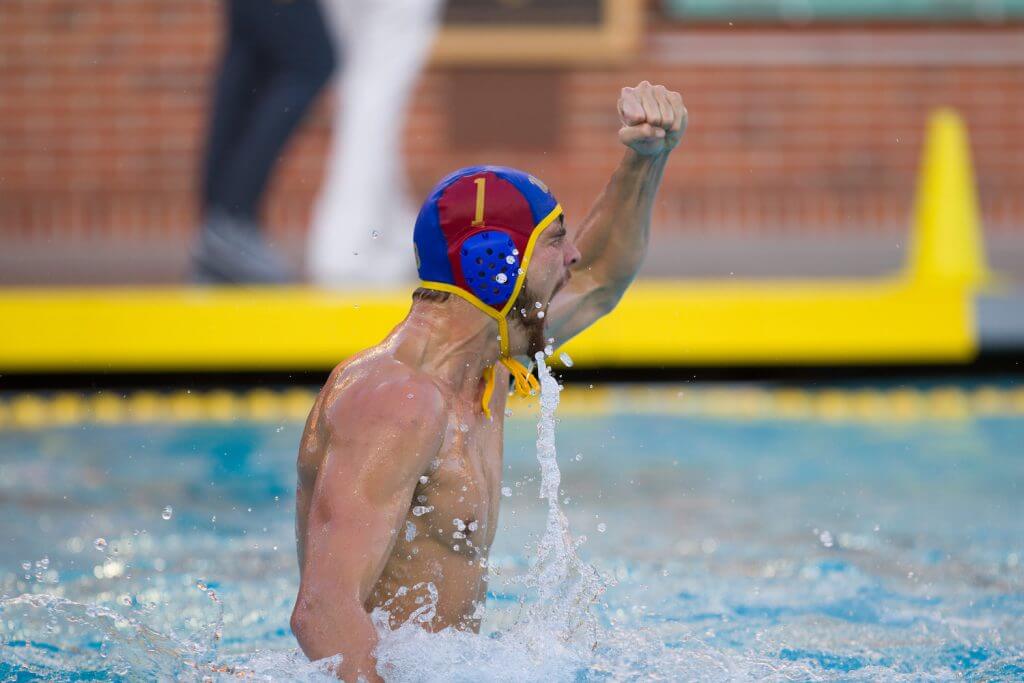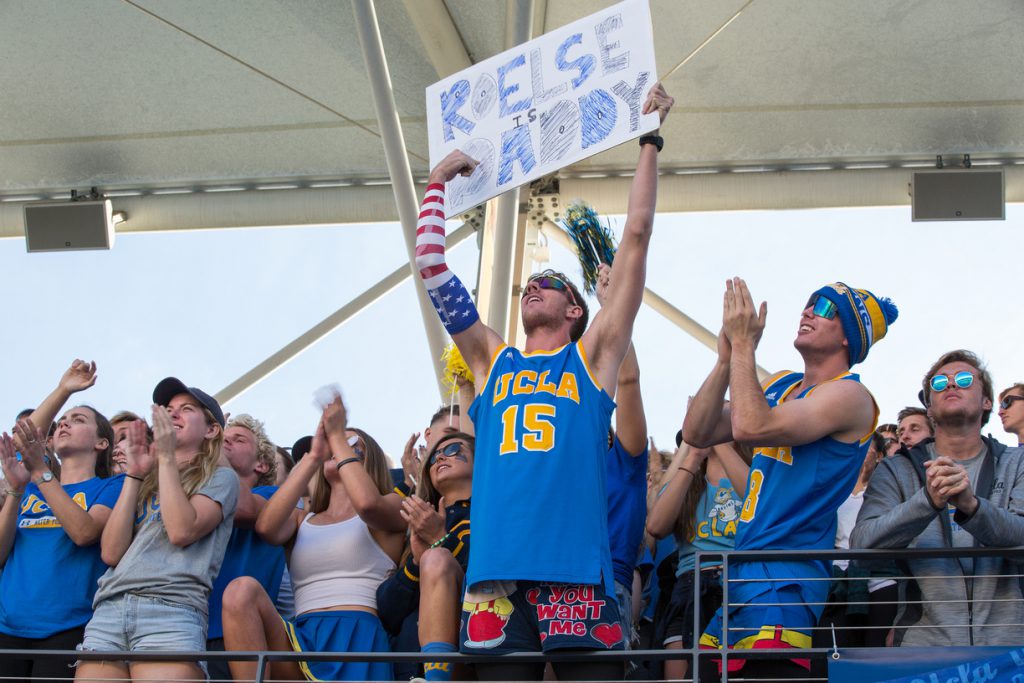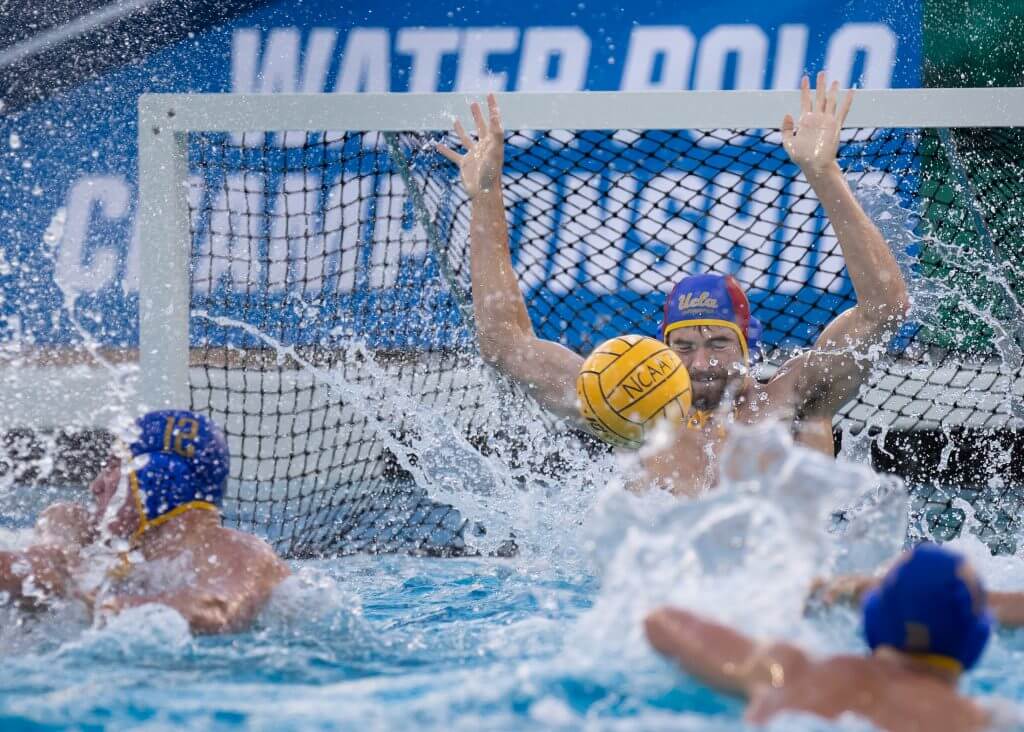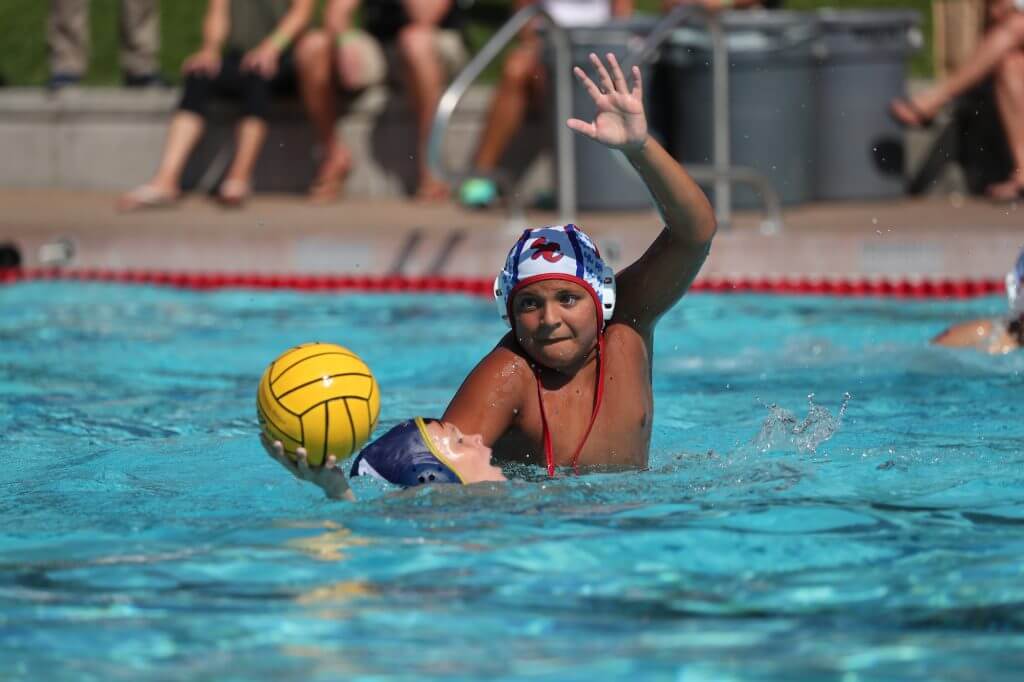On Deck With UCLA Water Polo’s Alex Wolf

Alex Wolf is up for this year’s Peter Cutino Award for the best collegiate water polo player along with Stanford’s Ben Hallock and Cal Berkeley’s Johnny Hooper, two players who he has long played with and against in club, high school, college and international competitions.
Swimming World spoke with Wolf about his water polo career starting at Huntington Beach Water Polo Club and Huntington Beach High School and going through his redshirt junior year at UCLA while representing USA at international competitions.

-You played on the most successful volleyball team in history when you were in high school. You have played in intense international competitions. How do you compare these experiences with your head-to-head rivalry versus USC in the last two NCAA tournaments?
All these experiences were very different. But my high school volleyball team at Huntington Beach High School did not realistically have any competition. [Note: his junior and senior teams went undefeated, winning two CIF Division I titles and playing their part in a national high school record of 121 consecutive victories.]
In my two years on the varsity, I think our team was only pushed to a five-game set once versus Corona del Mar. Every game was about pushing ourselves and we were our biggest competition. So, the approach was not about to win every game, it was more about playing as close to perfection as possible.
I try to take that same approach to water polo as well. However, the USC rivalry does boil down to beating USC. But I still try to take away as much as I can from each of those games.
-What did you think during the last quarter, the last minute, and the last possession of this year’s NCAA semifinal game? Was your thinking or approach any different than last year’s championship game?
I try to approach every single game the same and our final game this year against USC was no different. When you are in those intensely focused games like that, sometimes can sort of feel normal. But when the game comes down to the wire, all I can try to do is stop every single ball that comes my way. But this is what I am doing throughout the entire game. It doesn’t really matter where we play; all that matters is in the water between us and the other team.
-How does a goalie help guide the team, not only during defensive possessions, but also in practice, and during the off-season, especially as an upperclassman?
During games I am communicating and trying to help guide the defense. Help them help me have the easiest job possible, but that responsibility changes outside of competition where I am just trying to push my teammates to make them better and they are doing the same with me. As far as being an upperclassman, I am generally trying to lead by example. I am pretty vocal in the pool, but outside of that, I am just trying to be the best that I can be and trying to bring as much energy to practice as I can helping the younger people. I will give people specific advice like watch out for this or this shooter will do this. I just try to stay very level-headed.
-You have been in many intense playoff, international and NCAA games. Before your games, you stand at half tank and go through a fairly structured preparation ritual. Can you explain what you are thinking and doing?
I go through the same preparation for every single game and that starts the day before with what I am eating and a hundred of other little things.
Going through routines helps me mentally and physically to compete at my highest level. Sometimes at the international level, the schedule is not too accommodating to what I want to do. But I always try to keep it consistent. And then specifically before games at half tank, I do some stretches. I visualize both my warm-up and blocking balls in general. It is all just my routine to help prepare myself to play. I started doing that three years ago.
Especially in college when we are playing once a week, we try to prepare for teams a week before and even earlier, like going through scouting reports and walking through stuff in practice. I try to eat the same thing; carbs helps me a lot like pasta and chicken before a game. That helps me a lot. I used to eat salads but I threw it up before halftime. Orange juice also doesn’t settle in my stomach.

-Great goalies in ice hockey come up big in penalty shots. You seem to do the same when there is a one-on-nobody. As an open player is coming down the pool towards your cage, what are you doing and thinking about?
One-on-nobodies are its own little game itself. Generally, I always trying to come out a little bit so I can steal it if it is a bad pass. Every counterattack is different. There are variables like who is the player, the handedness, distance, where is my defense relative to them. I just go into it with a mindset that I will block it and I do not give up on any balls.
Generally, I do not react to any shots, but I am happy about any block. If they have a huge lead and I stop it, then we will have a huge lead on our counterattack. So I try to get the ball out quickly on the counterattack so I am more focused on the next play rather than celebrating.
You were always a great athlete, from when you were leading your 12U and 14U club teams. Take us through your development as an age-grouper through being a high school All-American and one of the world’s top goalies. What advice do you have to other young goalies with similar aspirations?

This is actually what USA Water Polo preaches a lot, especially to the younger people. The player that you are at 12 & under or 14 & under is completely different than what you are later in high school. Your body will mature completely and your game will mature. Something that I think you can always work with is that you can take every opportunity to get better.
I recently had an opportunity to do coaching with my old club (Huntington Beach Water Polo Club) to give the kids a college talk. Giving these 11-14 year olds a talk about always getting better and facing negative scenarios. For example, you are probably not going to win being behind by 10 goals in the fourth quarter, but instead of giving up then, you can take those opportunities in those down situations. Because, maybe later, you might not be down by 10, you might be only be down by 1 and you play with the same intensity in order to get back into the game.
When I was going through age group, there were not any players at any of the top schools. Later in high school, there were a few players who went to Harvard and UC Santa Barbara so it felt good to give back. I had pretty lofty goals at a very young age. I always had very strong legs. Things that I do is very basic. As I got older, training was not only in the pool, but also there was a mental aspect that became part of my training. We push this mental training a lot at UCLA. We started to have a national team book club. As a team, we read a book called Legacy by James Kerr about the New Zealand All Blacks that explores a lot of mental side of training and what people can do to be the best not only in sports, but outside sports as well.



